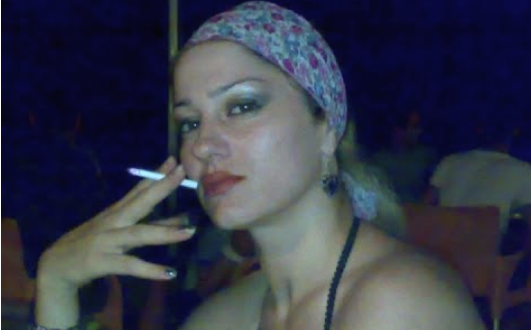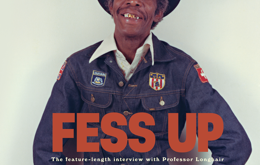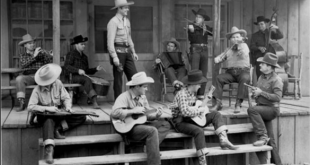YouTube is a portal into worlds you might hesitate to visit, but which are irresistible viewing at a safe virtual distance. In one, a singer works surrounded by stocky, thuggish-looking men. They appear to have been sent by `central casting’ for roles as Eastern European mafiosi. Nothing separates the lady from her audience. Do the brutes paw the alluring femme in their midst? No, they shower her with rose petals. As well they should!
Blerina Balili is Queen of the Dance, and dance retains its ancient ritual power in Albania. At wedding parties and nightclubs, she sings encircled by revelers swirling in a round dance that’s been in perpetual motion since prehistoric pagan fertility rites. Her voice would be the envy of any femme rocker: it’s strong enough to cut glass. Yet Blerina never pushes to `wow’ listeners with her power. No pyrotechnics. She knows that she’s just part of a symbiotic circle, one embracing the musicians and dancers as much as her. Everyone’s role is crucial, and none is ultimately greater than the others. To those of us conditioned to expect `performer/audience’ separation (and stars), this seems radical. Radical, perhaps, but hardly new: this is how the experiences of music and social ritual first intersected. There’s something wondrous strange about watching 21st century teens in a Tirana disco doing an ancient circle dance around a singer bleating into a distorting microphone to the accompaniment of synth keyboard and over-amped clarinet. Its strangeness may be an indictment: Cuban-born percussionist Freddy Alfonso observes: “The United States has all this material wealth, but at the same time the people here have nothing: no rituals for the young people, no connection to the ancestors.”
Blerina’s music is an urban folk style that readily lends itself to slick video treatment (her “Miqesi e vjeter,” with its sensuous clarinet, is a stunner) but is best experienced in her raw YouTube performances, bad audio and all. Sweaty and life-affirming, their singer-band-dancers nexus taps a rare vein of origins overlapping modernity.
Anyone keen to hear earlier Albanian music is thwarted by there being next to nothing in print. A notable exception is the vinyl-only 2011 release Don’t Trust Your Neighbors: Early Albanian Traditional Songs &
Improvisations, 1920s-1930s (Hinter Records). As he’s recently done with the kindred music of Epirus in Greece and violinist Alex Zoumbas, producer/annotator Christopher King sheds light on a little-heard musical tradition. Vestiges of this lineage animate the dance songs of Blerina Balili and others (the slicker, more telegenic Mariola Kacani for one) currently up and running on YouTube. Of the older stuff accessible only as audio, King calls it “an intense, hypnotic music, sometimes scary, sometimes achingly beautiful, but always profoundly moving, created by a fiercely proud and independent people: the Albanians.”
 Baja Review A community newspaper serving Ensenada, Valle de Guadalupe, and Rosarito in Northern Baja California
Baja Review A community newspaper serving Ensenada, Valle de Guadalupe, and Rosarito in Northern Baja California





